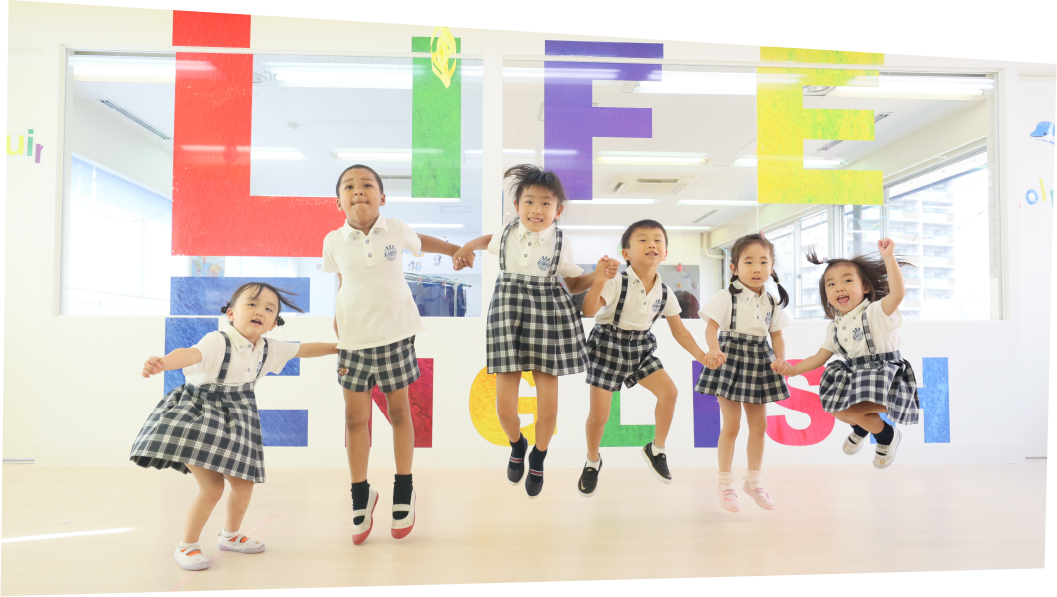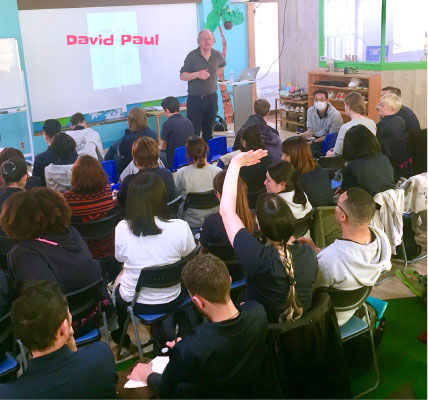Distinguished among English educators, he is an expert in the world of English-language education, with over 30 years of experience. He formed his experiences with children's language development into his child-centered philosophy, “Child Centered Learning”. Currently, his focus is on coaching and cultivating the skills of English educators.
He began teaching English in Hiroshima in 1980, and founded “David English House” in 1982. Going on to open schools in Seoul and Bangkok, his schools developed an excellent reputation around Asia. Currently, he devotes his time to lecturing and training teachers, with the aim of creating enjoyable environments where children can learn.
He has also written several textbooks and English instruction books. NO BORDERS’ concept, “LIFE ENGLISH” resonated with him, from 2018 David Paul became a partner of NO BORDERS. and has supervised NO BORDERS’ curriculum and assisted the professional development of NO BORDERS’ staff.

